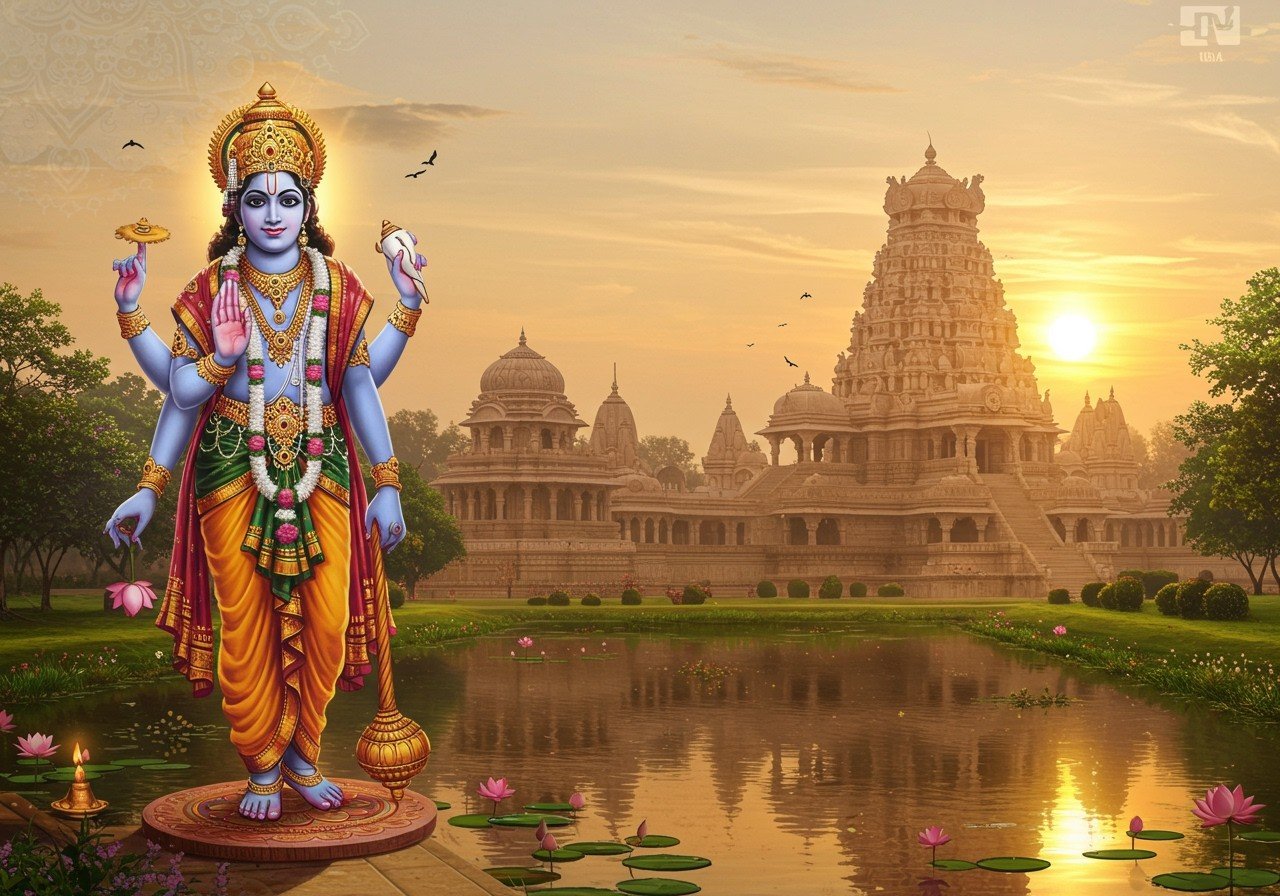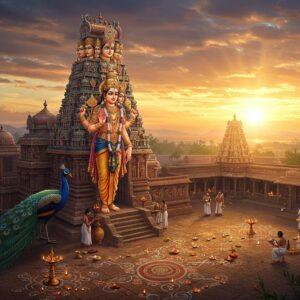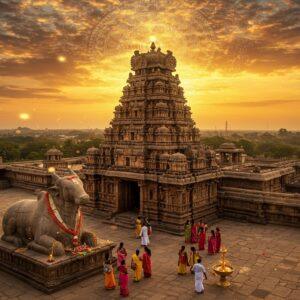
Hinduism, a faith embraced by millions, is a vibrant tapestry of deities, temples, and profound sacred meanings. These elements are intricately woven into the spiritual lives of devotees, offering guidance and a deep connection to the divine. Let’s explore these aspects with reverence and understanding.
The Divine Pantheon: Understanding Hindu Deities
Hinduism acknowledges a vast array of gods and goddesses, each representing different facets of the divine. These deities, often seen as manifestations of the singular Brahman, embody various cosmic principles and energies.
- The Trimurti: This crucial concept encompasses the three primary divine forms: Brahma, the creator; Vishnu, the preserver; and Shiva, the destroyer. This trinity represents the cyclical nature of creation, preservation, and destruction, vital for cosmic balance.
- Major Deities and Their Significance: Among the most revered deities are Vishnu, Shiva, and Shakti (the Divine Mother). Devotees often choose one as their primary focus, leading to the development of Vaishnavism, Shaivism, and Shaktism. Other significant deities include Ganesha, the remover of obstacles, and Karttikeya, the warrior god. Poojn.in offers a beautiful collection of deity idols to enhance your personal shrine.
- Murtis: Embodiments of the Divine: Hindus worship deities through murtis, sacred images believed to embody the divine presence. These murtis are treated with utmost reverence, like living beings, and are central to devotional practices.
Sacred Spaces: The Significance of Hindu Temples
Hindu temples, known as mandirs, are not merely structures but sacred spaces. They are believed to be the dwelling places of deities, serving as a bridge between the human and divine realms. Temples are powerful locations where devotees can experience the divine presence, offer worship, and receive blessings.
- More Than Just Worship: Temples are not only places of worship but also vibrant centers for social interaction, artistic expression, education, and cultural activities. They play a vital role in fostering community and preserving traditions.
- The Mandala: A Cosmic Blueprint: The layout of many temples reflects the mandala, a geometric representation of the universe. The garbhagriha, the inner sanctum, houses the main deity and is considered the heart of the temple. You can learn more about the significance of Hindu temples here.
- Architecture and Symbolism: Hindu temple architecture, rooted in Vedic traditions, often incorporates squares and circles, symbolizing cosmic principles. The shikhara (temple tower) represents the sacred mountain, while the gopuram (entrance gateway) marks the transition between the material and spiritual worlds. Intricate carvings of deities and cosmic symbols adorn the temple walls, narrating mythological stories and conveying profound spiritual lessons.
The Essence of Worship: Puja and Devotion
Worship in Hinduism, known as puja, is an expression of deep devotion (bhakti) directed towards one or more deities. It is a pathway to connect with the divine and experience spiritual growth.
- Diverse Expressions of Devotion: Puja can take various forms, ranging from personal reflection and prayer to elaborate ceremonies and rituals. Music, dance, poetry, and the chanting of mantras are all integral parts of Hindu worship. You can find a wide selection of mantra books and puja essentials at Poojn.in.
- Offerings and Darshan: Devotees offer fruits, flowers, sweets, and incense to the deity as tokens of love and reverence. They seek darshan, the auspicious sight of the deity, believing it to be a source of blessings and spiritual upliftment.
- Home Shrines: A Personal Connection: Many Hindus maintain home shrines where they can perform daily puja and connect with the divine in the comfort of their homes. This allows for regular spiritual practice and fosters a sense of sacredness in everyday life. Find beautiful murtis for your home shrine at Poojn.in.
Sacred Geography and Pilgrimage: Tirthas and Sacred Sites
Certain geographical locations hold deep spiritual significance in Hinduism. These places, known as tirthas, are believed to be points where the divine intersects with the human world.
- Tirthas: Crossings to the Divine: Rivers, mountains, and other natural formations are often considered tirthas. The Ganges River, for instance, is deeply revered and considered a powerful source of purification. Learn more about the sacred power of water in Hindu tradition here.
- Sacred Cities and Pilgrimage: Cities like Varanasi (Kashi), Allahabad, Mathura, and Kanchipuram are considered especially sacred and attract pilgrims from across the globe. Pilgrimage (yatra) is an essential part of Hindu practice, offering devotees an opportunity to deepen their faith and experience spiritual transformation.
- The Goal of Worship: Moksha and Inner Peace: Ultimately, the goal of Hindu worship is to attain moksha, liberation from the cycle of birth and death. Through devotion, ritual practice, and spiritual understanding, devotees seek blessings, guidance, inner peace, and a deeper connection with the divine.
Hinduism’s rich tapestry of deities, temples, and sacred meanings provides a framework for individuals to connect with the divine, seek spiritual growth, and find meaning in their lives. It is a journey of devotion, self-discovery, and ultimately, the realization of one’s true nature.
Embrace the beauty of Hindu traditions with Poojn.in, your one-stop shop for all your puja needs. We offer a wide range of authentic products, from diyas and incense to deity idols and puja kits, delivered right to your doorstep. Experience the convenience of online shopping while honoring your spiritual practices.


